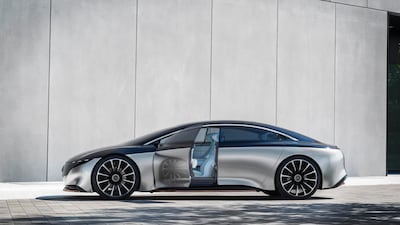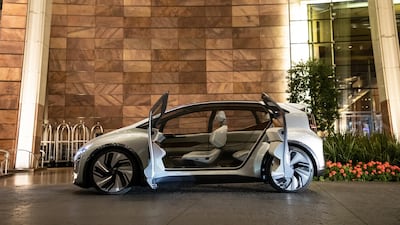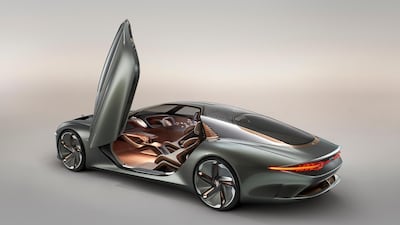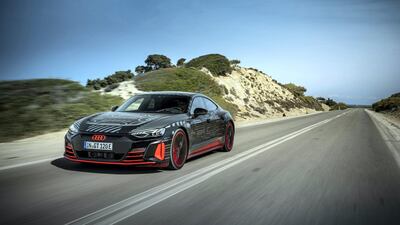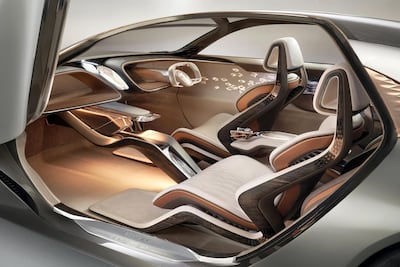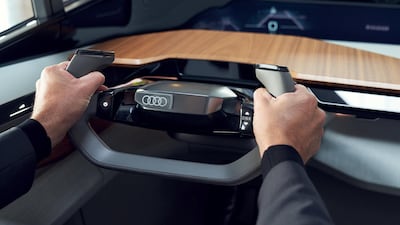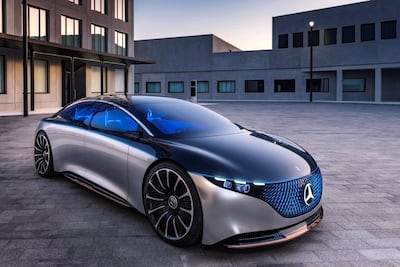Electrification, digitalisation and sustainability have been the biggest buzzwords in the automotive industry for some time, but how do premium brands that sell largely on emotional appeal incorporate such seemingly clinical and dispassionate elements without losing their audience?
Simply dispensing with a combustion engine could already be construed as a body blow, as thumping 12-cylinder motors have been a hallmark of ultra-premium marques, such as Bentley, Rolls-Royce, Ferrari and Lamborghini, for more than half a century. Surely ditching such a core element would rob these brands of a primary selling point?
The future is electric
Matthias Rabe, Bentley’s head of engineering, argues otherwise. “The future of Bentley will be fully electric,” he says. “We are working not just on one car, but a whole family. Next year we will have two plug-in hybrids and these offer the best of both worlds for customers, as they can decide when they want to go in full-electric mode, without any range anxiety.
“These models will be typical Bentleys – fun to drive and with a lot of torque – but with lower fuel consumption. By 2025, we will have our first full-electric car; by 2026 all our cars will be plug-in hybrid or full electric; and by 2030, Bentley’s line-up will be entirely electric, with combustion engines banished entirely.”
Brands such as Audi, BMW and Mercedes-Benz also rely on the intoxicating burble of twin-turbo V8s and V6s in their premium models but, in order to meet stringent new EU7 emission norms, they are being forced to electrify at least part of their line-up.
Premium driving experience
This is not a bad thing, says senior vice president for Audi, Henrik Wenders. “If you’ve driven some recent electric cars, you’ll know that beautiful feeling in your stomach when you accelerate. When you drive our upcoming RS e-tron GT [which shares most of its hardware with Porsche’s lauded Taycan] next year, you’ll also experience a spontaneous facelift as the acceleration is simply mind-blowing. When I drove the prototype, the skin of my face ended up around my ears! In a nutshell, this is when you feel how exciting electric cars can be.
“Apart from the terrific acceleration, it’s also about a premium driving experience, whereby there’s a real feeling of precision, and every detail is superbly executed. So, at Audi our duty is to tap into our vast engineering expertise to deliver all these attributes in our electric vehicles,” Wenders adds.
In addition to satisfying strict emissions norms, car companies are conscious of meeting shifting buyer tastes and values. Bentley’s head of sales and marketing, Chris Craft, elaborates. “When we look to our audience, we see them actively taking steps in terms of shaping their behaviour and values to align with brands that are consistent with sustainability. They aren’t going to be loyal to brands that aren’t sustainable.
“The demographic of our audience is changing, and if we look to 2030, 60 per cent of high-net-worth individuals will be under the age of 40. Thirty-five per cent of our audience will be women. It’s important to engage with this audience.”
Bentley’s head of digitalisation and IT, Astrid Fontaine says: “The cars we are designing for the future are no longer just to get you from A to B. They’re the most sophisticated devices for the internet [age]. Our customers are becoming more digitally savvy, so the way they interact with cars is changing. The expectations they have are not just in the physical world.”
Aesthetic interiors
Wenders says, when it comes to design, the emphasis will shift from the exterior to the interior, in line with an increasingly digitally obsessed audience. “We will obviously continue to focus on attractive exterior design, but the interior will become even more important,” he says.
“The AI:ME and AI:CON concept cars showcase our vision of a beautiful interior. We will translate these visions into serial production cars over the coming years, and they will become examples of vehicles that are integrated into the digital grid, catering especially to those consumers who would rather look at their smartphone during their journey, rather than actively driving the car.”
Although the focus is now on electrification and sustainability, old-world charm will remain an essential element for ultra-premium brands. Bentley chairman and chief executive Adrian Hallmark says one example is 5,000-year-old "Riverwood" that was decomposing in lakes and rivers in East Anglia in England.
“We’ve been able to extract it, revitalise and polish it to turn it into a veneer with a unique finish,” says Hallmark. “So, you’ve got a 5,000-year-old veneer that looks amazing. What this means is that the future of luxury can be just as inspirational, even more so than in the past in terms of materials, colours and trim. We just have to make sure we do it in a sustainable way.”
Sustainable sourcing
Hallmark says this focus applies not only to cars, but also the processes that go into making them. "Our production at Crewe is already CO2 neutral, by taking energy from the solar farm down the road and by buying green energy for whatever else we need."
Wenders says Audi's production facilities will also become CO2 neutral by 2025, and he argues the brand's sourcing of the vast quantities of lithium, cobalt and nickel required for EV battery production is being done in a sustainable way.
"Our focus is not just on delivering a clean-running vehicle, but also on the entire supply chain." He also suggests there is no risk of these raw materials running out in the foreseeable future. "All the EV product announcements we've made are based on secured resources," he says. "Being part of the Volkswagen Group puts us in a strong position. In addition, I know about the recycling process we have in place, so I'm confident the future can become electric."
Electrifying possibilities
Elsewhere among the German automobiles, Mercedes-Benz first offered electric vehicles way back in 1906, but the anticipated EQS, which will spearhead its EQ electric sub-brand when it launches in 2022, is expected to take EVs to another dimension. Chairman Ola Kallenius says the EQS will set new benchmarks for luxury, comfort and safety, and Mercedes says the limousine will have a staggering – for an EV – range of more than 700km.
Merc’s newcomer will be underpinned by a dedicated new platform with a flat floor, and there will be no intrusion from a gearbox and driveshaft tunnel – as EVs make do without these elements – so the EQS could offer more cabin space, silence and accelerative urge than even its opulent S-Class sibling.
If the EQS delivers on its promise, the balance of power in the ultra-premium segment will shift emphatically to these fuel-free vehicles. And that’s an electrifying place to be.
